Animals
-
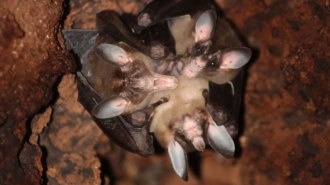 Animals
AnimalsThese giant carnivorous bats hug, cuddle — and even share dinner
Infrared cameras in Costa Rica revealed that the world’s largest carnivorous bat maintains close social bonds through wing wraps and prey sharing.
By Jay Kakade -
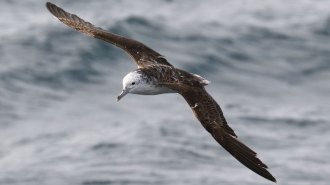 Animals
AnimalsStreaked shearwaters poop only while flying over the ocean
In-flight defecation may help the birds stay away from feces that can contain pathogens such as bird flu while also fertilizing the ocean.
-
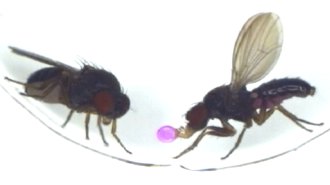 Animals
AnimalsA single protein makes lovesick flies spill their guts
Producing a male-specific protein in digestion-related neurons may have led to the evolution of an odd “romantic” barfing behavior in one species of fruit flies.
-
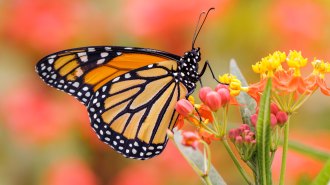 Animals
AnimalsWarm autumns could be a driver in monarch butterflies’ decline
In the lab, higher temperatures during fall migration led monarchs to break their reproductive pause, increasing their risk of death.
By Jude Coleman -
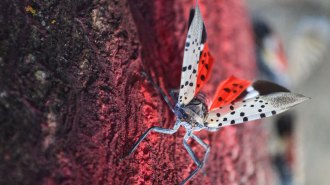 Life
LifeSquashing the spotted lanternfly problem may require enlisting other species
The invasive spotted lanternfly has spread to 17 states and can threaten vineyards. But bats, fungi, dogs and even trees may help control them.
- Genetics
This snail may hold a secret to human eye regeneration
Golden apple snails can regrow full, functional eyes. Studying their genes may reveal how to repair human eye injuries.
-
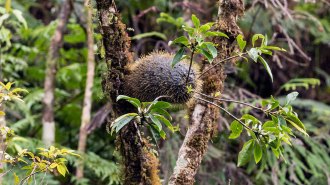 Plants
PlantsThese plants build ant condos that keep warring species apart
The unique architecture of some ball-like plants high in trees in Fiji lets violent ants live peacefully and feed the plant with valuable droppings.
By Susan Milius -
 Animals
AnimalsThe mystery of melting sea stars may finally be solved
A bacterium called Vibrio pectenicida may be melting sea stars along North America’s Pacific coast.
-
 Health & Medicine
Health & MedicineSome probiotics could feed, rather than fend off, infections
Probiotics containing Lactobacillus gasseri Lg-36 prevented C. difficile infections in mice, but L. acidophilus probiotics made infection more likely.
-
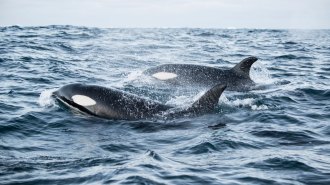 Animals
AnimalsSome killer whales hunt in pairs to maximize their bounty
Drone footage from Norway shows killer whales using a highly coordinated and cooperative hunting technique to catch herring.
-
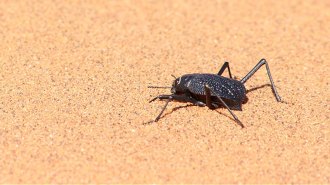 Animals
AnimalsThis desert beetle runs to cool off
After a sprint, the temperature of the beetle Onymacris plana drops. Efficient running, a body built for cooling and a little bit of lift all help.
-
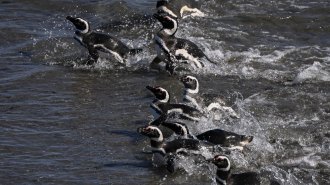 Animals
AnimalsSome penguins save energy by riding ocean currents
When navigating home, Magellanic penguins alternate between heading straight back in calm waters and swimming with the flow in strong ocean currents.